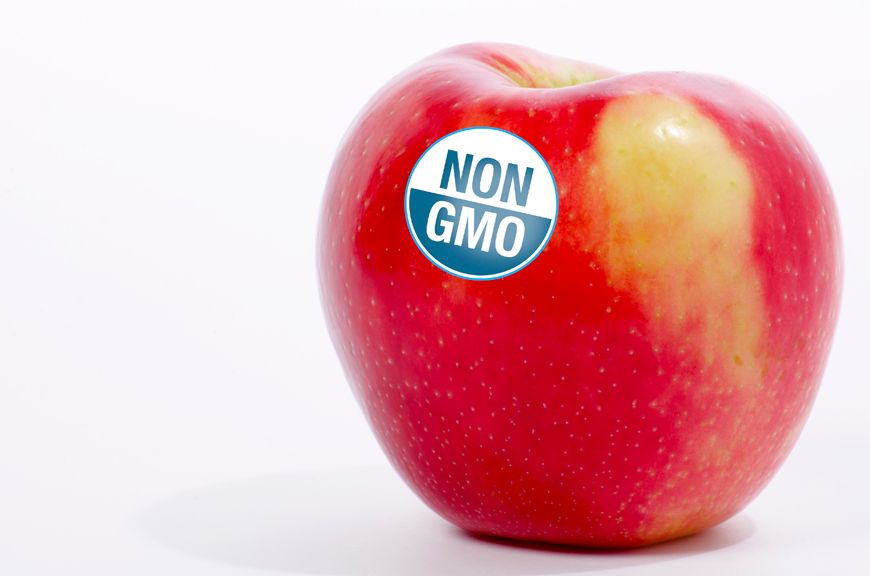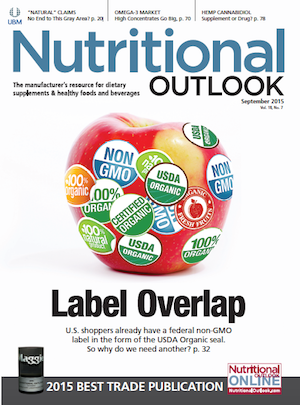GMO Labeling in the Hot Seat
The U.S. House passed the Safe and Accurate Food Labeling Act in July. What’s the current status of GMO-labeling laws, and is federal GMO labeling now imminent?
Photo © iStockphoto.com/Craig McCausland

On July 23, the U.S. House of Representatives passed H.R. 1599, the Safe and Accurate Food Labeling Act (SAFE), also referred to by its critics as DARK, or the “Deny Americans the Right to Know” Act. As SAFE heads toward a Senate vote, stakeholders on both sides of the GMO-labeling divide are at the edge of their seats wondering, “What’s next?”
What the Bill Proposes
SAFE would amend the Federal Food, Drug, and Cosmetic Act in numerous ways.
First, it would require developers of GMOs intended for use in food to submit a premarket biotechnology notification to the U.S. FDA. “The premarket notification must include the developer’s determination that food from, containing, or consisting of the GMO (GMO food) is as safe as a comparable non-GMO food,” the bill states.
For the GMO to be sold as food, FDA must not object to the developer’s determination of safety. If FDA determines that there is a material difference between a GMO food and a comparable non-GMO food, the bill says, “FDA can specify labeling that informs consumers of the difference.” H.R. 1599 further stipulates, “No food label can suggest that non-GMO foods are safer than GMO foods.” And the bill states that a food can be labeled as non-GMO even if it is produced with a GMO processing aid or enzyme or is derived from animals fed GMO feed or given GMO drugs.
SAFE also would establish some crossover with USDA’s current National Organic Program (NOP). Under H.R. 1599, products would be allowed to be labeled GMO-free if the ingredients’ supply-chain process controls are USDA NOP certified.
These are only some of the significant changes SAFE would create in the marketplace. Other portions of the bill, as discussed ahead, are much more contentious.
GMO Labeling Would Be Federal, Voluntary, and Preempt State Law
SAFE would amend the USDA’s Agricultural Marketing Act of 1946 to require the Agricultural Marketing Service to establish a voluntary program to certify non-GMO food. This voluntary federal program would preempt state and local restrictions on GMOs or GMO food and labeling requirements for GMOs, GMO food, non-GMO food, or natural food.
In other words, if SAFE were to become law following passage by the Senate and a Presidential signature, the law would void any state-level GMO labeling laws. Notably, this means that the country’s first state-level, mandatory GMO-labeling law passed in Vermont last May would be rendered null. Vermont’s law requires manufacturers to label GMO-containing foods as such and prohibits manufacturers from describing genetically engineered products as “natural.” (Maine and Connecticut have also passed GMO labeling laws, but a trigger clause means that these won’t become active until other states first pass similar laws.)
Do We Need a Federal GMO Labeling Law?
Opinions are hot regarding whether or not there should be a federal non-GMO labeling law, whether that law should be voluntary or mandatory, and whether a federal law should supersede state law.
Vermont’s law has already being challenged by those who don’t believe state-level laws are the answer. In September 2014 the Washington, DC–based Grocery Manufacturers Association (GMA), along with a host of food-chain associations, filed a complaint in U.S. District Court in Vermont challenging the state’s GMO-labeling law (Act 120). Despite this, the law was upheld, as discussed ahead.
According to the GMA’s director of communications, Brian Kennedy, “Vermont’s mandatory labeling law is a costly and misguided measure that will set the nation on a path toward a 50-state patchwork of GMO labeling policies that do nothing to advance the health and safety of consumers, and exceeds the state’s authority under the U.S. Constitution.”
“That’s a flat-out lie,” asserts Katherine Paul, associate director of the Finland, MN-based Organic Consumers Association (OCA). “Did he not read the 84-page decision of U.S. District Court Judge Christina Reiss?” referring to grocery industry’s 2014 challenges to Vermont’s law that were largely dismissed in April 2015. Among those challenges the judge dismissed was the grocery industry’s claim that Vermont’s law, by mandating state GMO labeling, violated the Commerce Clause of the U.S. Constitution, which gives the federal government the power to regulate interstate commerce. The grocery industry’s argument is that GMO labeling in one state affects interstate commerce.
While some may argue that a federal law would solve the potential “patchwork” of state-level regulations, others balk at the thought of barring state-level laws. Beth Clay of Maryland-based government relations consultancy Hawk International goes one step further: “States and local jurisdictions are the great laboratories of democracy. H.R. 1599 would, if a companion bill is also passed in the Senate, void GMO labeling laws already on the books and prevent the passage of new GMO-labeling laws.”
Other Concerns, Including Defining Natural
Another hotbed topic nestled within HR 1599 is over use of the term natural. H.R. 1599 would prohibit states from holding misbranded any GMO-containing food being marketed as natural. SAFE would also require that FDA finally define and regulate use of the term natural.
Michael McGuffin, president of the American Herbal Products Association (AHPA; Silver Spring, MD), whose organization opposes federal preemption, points out that SAFE does not offer any specific Congressional view as to whether GMOs will be allowed in any definition of natural.
And then there’s the concern of what will happen to products already verified non-GMO under currently existing, third-party non-GMO certification programs. Will these programs still have a place if a federal GMO standard goes into effect? This also remains to be seen.
The Wait
Opinions on SAFE are undeniably heated. According to David Bronner, cosmic engagement officer for Vista, CA–based brand Dr. Bronner’s, the grocery industry needs to recognize that “consumers have the right to know if their food is engineered to be saturated in toxic herbicides.”
Preemption clause aside, McGuffin says he personally is encouraged by the bill by and large and believes that “every effort should be expended on a Senate version of the bill that is at least as good as the one that passed the House.”
The Senate will return from recess in September, and it remains to be seen if and when a companion bill to SAFE will be introduced and championed-and what the future of GMO-labeling is in the United States.
Also read:
Understanding Global GMO Regulations
GMO and Prop 65 Labeling: Unconstitutional?
An award-winning health journalist and consultant, James Gormley has 20 years of experience in the natural products industry. He can be reached at jamesgormley01@gmail.com.

HHS announces restructuring plans to consolidate divisions and downsize workforce
Published: March 27th 2025 | Updated: March 27th 2025According to the announcement, the restructuring will save taxpayers $1.8 billion per year by reducing the workforce by 10,000 full-time employees and consolidating the department’s 28 divisions into 15 new divisions.





















